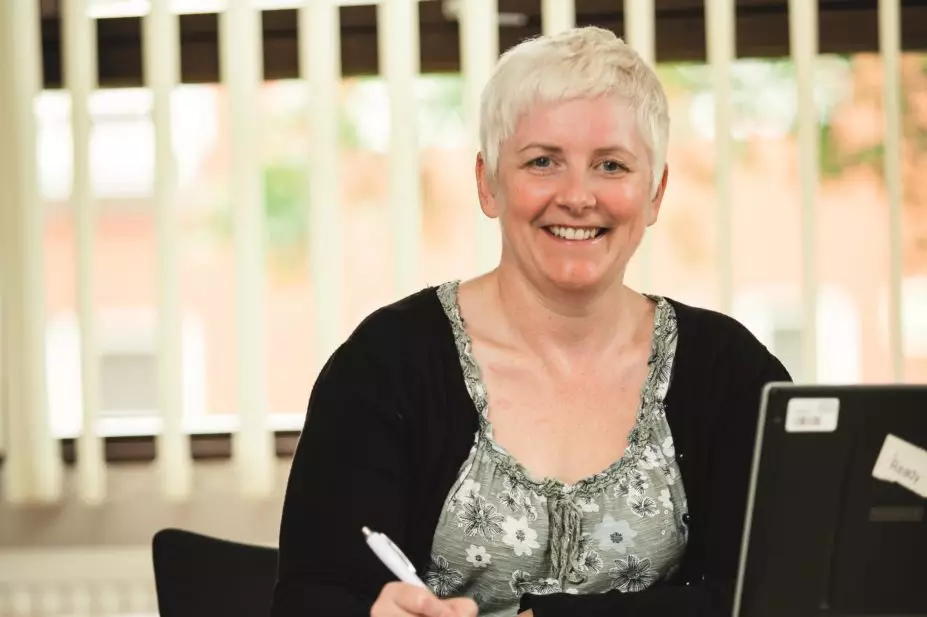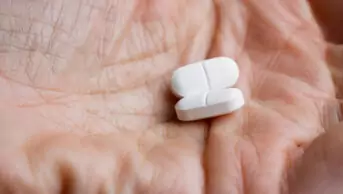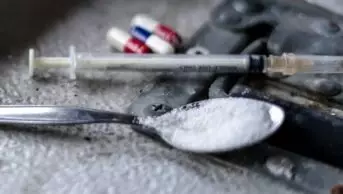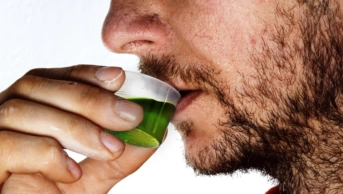
Richard Wilson Photography
Christine Rowlands, senior practitioner and clinical pathways lead with medicines management for the Health and Justice services, describes the difficulties of managing medicines in the prison environment.
How did your career get started?
I started out as a community pharmacist for a large multiple where I had a varied experience working in number of different locations. It was when I became the manager of a small, city centre branch that I developed my interest in substance misuse. I took the opportunity to get involved with local substance misuse services and became part of the team developing them. As a result I developed relationships with clinicians in the local drug team, the addiction unit and the local homeless team.
How did you end up working in prison pharmacy?
I had developed a substance misuse service within my pharmacy and was busy focusing on developing my skills in this area when a job for a pharmacist at the local prison was advertised.
This was not something I had considered before but it seemed like an ideal opportunity.
I started working for the local primary care trust as a pharmacist based at HMP Leeds in 2004 and covered three other prisons. I went on to qualify as a supplementary and then independent prescriber within the prison, working in the substance misuse service and leading medicines management across all the healthcare teams.
I led the project management of the integrated drug treatment service in HMP Leeds and my role expanded to managing a number of clinical services within the prison. It was during a restructure of the local primary care trust and the Health and Justice services when my role changed to clinical pathways lead (including medicines management) working across three prisons and four police custody areas across Yorkshire and Humberside.
What’s the best part of your job?
Seeing people come through the health and justice system and being part of their transformation is satisfying as a clinician. The variety of patients means each day brings new experiences and challenges.
We see everything you would in a community pharmacy and a hospital under one roof and I work closely with my colleagues across the healthcare teams to ensure the patients get equivalent care to those in the community.
We have had a number of successful projects involving our patients. One group of patients — dubbed the ‘healthcare reps’ — have been working alongside us to help develop and shape our services. For example, they helped us change medicines administration times for substance misuse patients. Seeing patients getting involved and feeling empowered is rewarding, especially within the prison environment. Our service was the first to develop this role in prisons.
What are your daily responsibilities?
I provide clinical leadership to all the different teams and healthcare professionals in the services. I am also in charge of medicines management over all the sites in our health and justice portfolio. I drive the learning from incidents, complaints, inspections (Care Quality Commission and Health and Justice inspections), action plans and audits while working with patients to improve and develop services. As a clinical supervisor I also deliver staff training on clinical supervision, substance misuse and medicines management.
I run my own clinic each week in which I see patients about substance misuse issues. I work as an independent prescriber supporting GP services and I support the pharmacists and the medicines management teams in all our services.
What is the biggest challenge you face?
The environment we work in is challenging. We work closely with partnership organisations, such as the prison governor and his team, Lifeline (which provides drugs and alcohol services), mental health in-reach services (which provides mental health support in UK prisons) and Leeds City Council social care services. It’s important to make sure we have a multidisciplinary approach, but getting everyone together can be a challenge.
Another challenge is medicines management and security. We have a number of processes and procedures in place to ensure security and safety around all aspects of the medicines, from prescribing to dispensing to administration. You also have to be aware of your own personal and physical security and protect yourself from conditioning — where prisoners praise staff members to gain rewards.
Did anything surprise you when you first started working in prison pharmacy?
When I started, the NHS had just taken over delivering the healthcare service and this meant there were lots of changes because there was limited guidance available. These developments included clinical changes to prescribing, as well as operational changes, so there was a lot to take on board.
I have since been involved in influencing some of these changes through developing national guidance as vice chair of the Royal Pharmaceutical Society’s Secure Environment Pharmacists Group (SEPG), which provides professional services to prisons and other secure environments in England and Wales.
I was surprised about the differences between prison and community healthcare and how much there was to learn and understand about working in a prison and the security requirements. You need to be aware of what is going on around you at all times for your own security and that of the community. This includes risk assessments to decide whether patients can keep their medicines in their possession or if they need to be supervised.
The varied range of medical conditions we see on a daily basis is also surprising. Even though I am experienced in community pharmacy I come across conditions I’ve never seen, such as acromegaly, a condition in which the body produces too much growth hormone, leading to the excess growth of body tissues over time. I also deal with medicines that are usually only encountered in a hospital, such as new hepatitis C drugs and HIV medicines.
What advice would you give to another pharmacist hoping to pursue a similar career?
I would get in touch with a local prison pharmacist to find out what it is like to work in Health and Justice services. But ultimately you have to experience it to see if it is for you. I also suggest that you should have some experience in mental health and substance use, and working with a diverse range of patients.
Building up a network of contacts in health and justice has helped me greatly and the SEPG is an excellent resource for any health and justice pharmacist or anyone interested in working in this environment.
You may also be interested in

Drug-related deaths among people treated for opioid dependence more than treble in ten years, study finds

There is a vulnerable group we must not leave behind in our response to COVID-19: people who are dependent on illicit drugs
